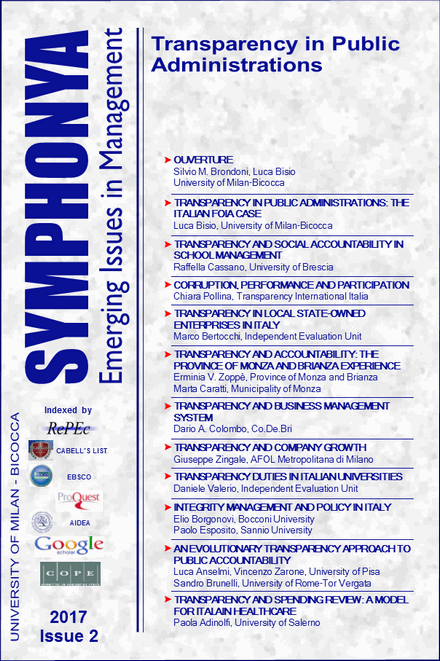Integrity Management Policy in Italy
DOI:
https://doi.org/10.4468/2017.2.10borgonovi.espositoKeywords:
New Public Management, Public Integrity, Corruption, Rules, Accounting Regulation, Transparency, Public Administration, Global MarketsAbstract
Low efficiency of public administrations is considered an obstacle towards overcoming the effects of the financial crisis and recovering growth. Why does this happen? It is for sure because principles, criteria, techniques of good management are not tailored to the peculiarity of public interest organizations, but also because public integrity distortions orient people to use it as an instrument to exercise power. New Public Management has not been sufficient to break the vicious circle of inefficient public administration and a new anti-corruption law has been introduced in Italy. Its main objective is to prevent and control “the negative corruption effect” attempts towards the common good – also characterized by capital rationing – which can compromise the present and future wealth of communities.
Downloads
Published
How to Cite
Issue
Section
License
The authors retain all rights to the original work without any restrictions.
License for Published Contents

You are free to copy, distribute and transmit the work, and to adapt the work. You must attribute the work in the manner specified by the author or licensor (but not in any way that suggests that they endorse you or your use of the work).
License for Metadata

Symphonya published articles metadata are dedicated to the public domain by waiving all publisher's rights to the work worldwide under copyright law, including all related and neighboring rights, to the extent allowed by law.
You can copy, modify, distribute and perform the work, even for commercial purposes, all without asking permission.



